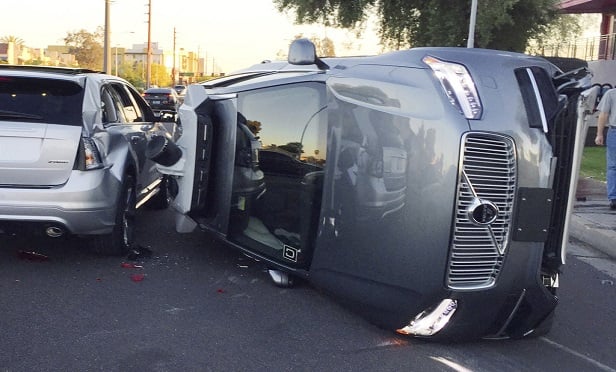 Uber self-driving SUV that flipped on its side in a collision in Tempe, Arizona on March 24, 2017. (Photo: Tempe Police Department)
Uber self-driving SUV that flipped on its side in a collision in Tempe, Arizona on March 24, 2017. (Photo: Tempe Police Department)
Self-driving cars may be the future thanks to the innovative Tesla, Uber and Volvo, but are they the future for personal injury law?
Recommended For You
Want to continue reading?
Become a Free PropertyCasualty360 Digital Reader
Your access to unlimited PropertyCasualty360 content isn’t changing.
Once you are an ALM digital member, you’ll receive:
- Breaking insurance news and analysis, on-site and via our newsletters and custom alerts
- Weekly Insurance Speak podcast featuring exclusive interviews with industry leaders
- Educational webcasts, white papers, and ebooks from industry thought leaders
- Critical converage of the employee benefits and financial advisory markets on our other ALM sites, BenefitsPRO and ThinkAdvisor
Already have an account? Sign In Now
© Touchpoint Markets, All Rights Reserved. Request academic re-use from www.copyright.com. All other uses, submit a request to [email protected]. For more inforrmation visit Asset & Logo Licensing.







